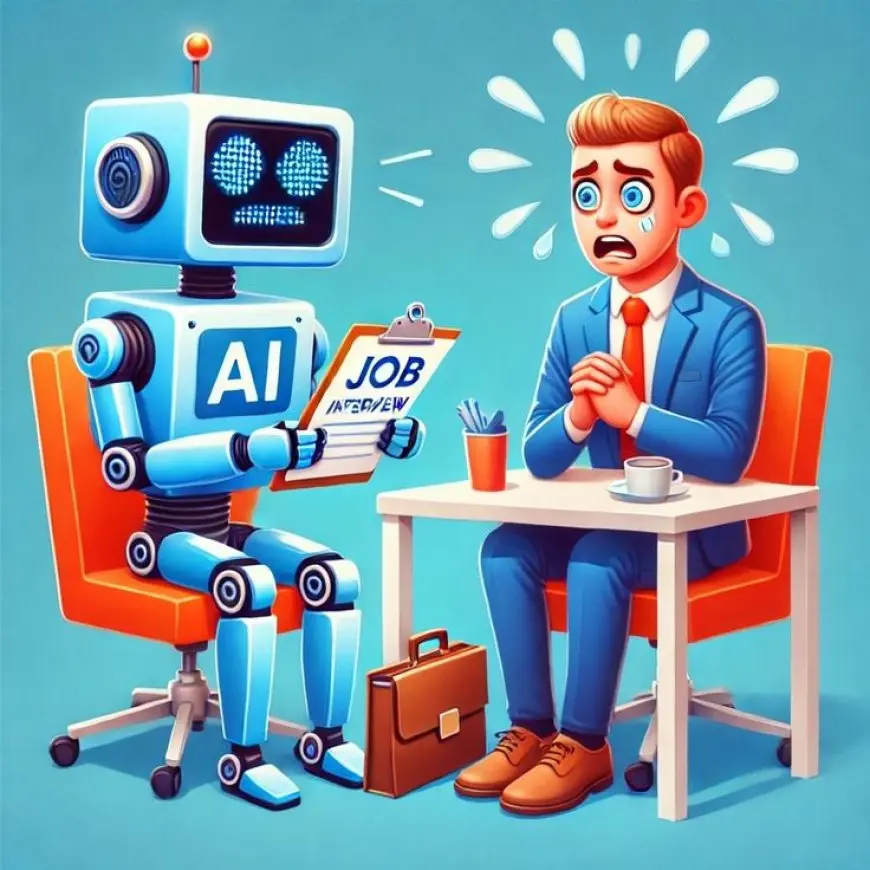"The Impact of AI on Employment and Job Creation"
"The Impact of AI on Employment and Job Creation"

The rise of Artificial Intelligence (AI) is one of the most transformative forces in today’s job market, with the potential to revolutionize industries and reshape the future of work. As AI technologies continue to advance, they are altering the way businesses operate, influencing the skills required for various jobs, and creating new opportunities while simultaneously displacing some existing roles. The impact of AI on employment and job creation is a topic of great interest, as it presents both challenges and possibilities for workers and organizations alike.
One of the most immediate effects of AI is the automation of routine, repetitive tasks. In sectors such as manufacturing, logistics, and customer service, AI-powered systems are taking over jobs that were traditionally performed by humans. These tasks often involve predictable, low-skill activities that can be easily replicated by machines. For example, in factories, robots equipped with AI are now capable of assembling products, inspecting items for defects, and packaging goods with a level of precision and efficiency that surpasses human capabilities. While this has led to significant productivity gains for businesses, it also means that certain jobs, particularly those requiring manual labor or basic cognitive tasks, are at risk of being replaced by AI.
However, rather than merely eliminating jobs, AI also has the potential to create new employment opportunities. As businesses adopt AI technology, there is a growing demand for skilled professionals who can develop, implement, and maintain AI systems. Fields like machine learning, data science, and AI programming are experiencing rapid growth, and these roles require a combination of technical knowledge and problem-solving skills. This shift presents an opportunity for workers to upskill or reskill in order to take advantage of the growing demand for AI expertise.
Furthermore, AI is enabling the creation of entirely new industries and sectors. For instance, AI-powered applications are opening up possibilities in fields like healthcare, finance, and agriculture. In healthcare, AI systems are helping doctors diagnose diseases, create personalized treatment plans, and monitor patient health in real time. This is leading to the creation of jobs for medical data analysts, AI-driven diagnostic experts, and health tech developers. In finance, AI is revolutionizing everything from fraud detection to investment analysis, creating new roles in financial technology (fintech). Similarly, AI is optimizing agricultural practices, leading to innovations in precision farming that require workers with expertise in AI and robotics.
AI is also contributing to the emergence of the gig economy. As more businesses leverage AI to streamline operations and improve customer experiences, new business models are being created that rely on flexible, short-term work arrangements. For example, AI-powered platforms are enabling individuals to offer freelance services or create content for online markets with greater efficiency. This shift is changing the nature of work, as people can now work remotely or on-demand, allowing for a broader range of job opportunities and more autonomy in choosing work.
The introduction of AI into the workforce also brings with it significant challenges. One of the most pressing concerns is the potential displacement of workers, particularly in sectors where tasks can be easily automated. Many low-skill workers who rely on jobs that are repetitive or routine may face difficulty transitioning to new roles without adequate retraining and support. This presents a social and economic challenge, as governments, educational institutions, and businesses must work together to ensure that workers have access to the skills and resources needed to thrive in an AI-driven economy.
The skills gap is another issue that is becoming more pronounced as AI continues to shape the job market. While AI is creating new opportunities in fields like data science and robotics, the demand for these roles is outpacing the supply of workers with the necessary expertise. As a result, there is a growing need for investment in education and training programs that equip individuals with the skills required to succeed in the AI-driven job market. This includes not only technical skills but also soft skills like creativity, emotional intelligence, and critical thinking, which are essential for working alongside AI systems.
Another challenge is the ethical and societal implications of AI’s impact on employment. As AI systems become more capable of performing tasks traditionally done by humans, there are concerns about job inequality, as well as the broader impact on social mobility. For example, AI could exacerbate income inequality if higher-paying, AI-related jobs are accessible only to those with advanced education and training, while low-skill workers are left behind. Ensuring that AI benefits all members of society will require thoughtful policies that promote inclusivity and fairness in the distribution of job opportunities.
In conclusion, AI is reshaping the landscape of employment and job creation in profound ways. While it is true that AI has the potential to displace certain jobs, it also opens up new opportunities in emerging industries, creates demand for new skills, and fosters innovation in ways that were previously unimaginable. The key to harnessing the full potential of AI in the workforce lies in ensuring that workers are equipped with the right skills, that businesses are able to adapt to changing technological needs, and that governments and institutions implement policies that promote equitable access to opportunities. The future of work will be defined not by AI replacing humans but by the collaborative relationship between humans and machines, leading to a more dynamic and diverse job market.







